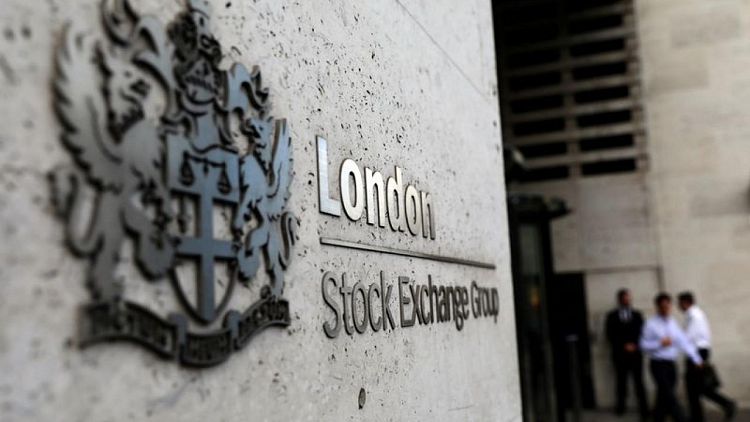By Herbert Lash
NEW YORK -The dollar eased and a gauge of global equity markets fell on Monday despite strong manufacturing data as investors worried about the potential for renewed U.S.-China trade tensions and rising inflation as oil prices surged to multi-year highs.
U.S. Treasury yields rose on investor caution about the need to raise the government's debt ceiling as the United States faces the risk of a historic default in two weeks.
Oil jumped after Reuters reported the Organization of Petroleum Exporting Countries and allies would stick to their current output policy instead of boosting supply more.
Brent crude futures settled up $1.98 at $81.26 a barrel, while U.S. crude rose $1.74 to settle at $77.62 a barrel.
New orders for U.S.-made goods accelerated in August, pointing to sustained strength in manufacturing even as economic growth appeared to slow in the third quarter due to shortages of raw materials and labor.
Manufacturing is still being hobbled by global supply-chain issues, while data last week showed high inflation sharply cut consumer spending in July, with a moderate rebound in August.
"The negatives are building and have been building for the last several weeks during this bit of a downturn that we've seen," said Tim Ghriskey, chief investment strategist at Inverness Counsel.
Top U.S. trade negotiator Katherine Tai pledged to unwind some tariffs imposed by former President Donald Trump on goods from China while pressing Beijing to keep its promises.
Tai said Washington seeks to stop China from pouring billions of dollars of state subsidies into its semiconductor, steel and other industries.
"In the past, escalation of U.S.-China trade tensions has sparked risk off among investors," said Marc Chandler, chief market strategist at Bannockburn Global Forex.
MSCI's all-country world index fell 1.0% to more than a three-month low, while the broad STOXX Europe 600 index closed down 0.47%.
U.S. stocks pared some losses after President Joe Biden said a reconciliation bill that stalled last week in Congress will be smaller than progressive lawmakers would like.
The Dow Jones Industrial Average fell 0.92%, the S&P 500 slipped 1.30% and the Nasdaq Composite dropped 2.07%.
The dollar weakened from last week's one-year highs as investors looked ahead to the release on Friday of September employment data, which could signal when the Federal Reserve begins to taper asset purchases.
Gold prices rose to a more than one-week high on the weaker U.S. currency and risk off sentiment in equity markets lifted demand for the safe-haven metal.
The dollar index, which tracks the greenback versus a basket of six currencies, fell 0.20% to 93.752.
The euro rose 0.28% at $1.1627, while the Japanese yen slid 0.17% at $110.8600.
U.S. Treasury yields rose as the market fretted about the debt ceiling. Biden said he cannot guarantee the government won't breach its $28.4 trillion debt limit unless Republicans join Democrats in voting to raise it.
"The market is really focused on Washington D.C. and the uncertainty of being unable to come to agreement on the infrastructure social spending plan and raising the debt limit," said Thomas Hayes, managing member at hedge fund Great Hill Capital LLC.
The yield on 10-year U.S. Treasury notes rose 1.4 basis point to 1.4806%, after trading above 1.5%.
Francois Savary, CIO of Swiss wealth manager Prime Partners, said markets were increasingly pricing in a stagflation scenario of lackluster growth and high inflation, a headwind for stocks which have scaled a series of record highs and trade at expensive multiples.
"You can live with highly valued markets if you have the prospect of economic growth ahead. But if you think stagflation is becoming an issue and the only option is to tighten policy and kill economic activity, that's not good for equities," Savary said.
Adding to the growth worries, investor morale in the euro zone fell for the third month in a row in October.



